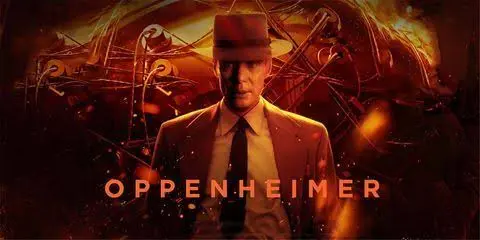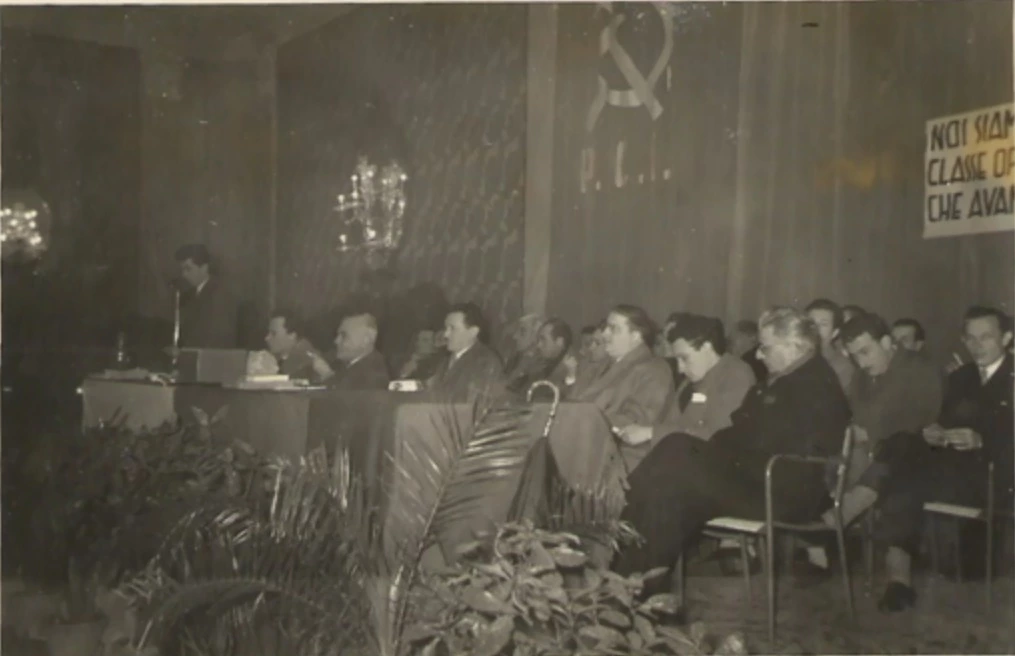DIALECTICS IS THE SONG OF THE SUMMER
Dear Comrades and Readers,
As always, I would like to thank the editors of the International Magazine for this opportunity to write critically about popular cinema, in this case, about Christopher Nolan’s Oppenheimer. There are precious few places where this discourse unfolds in a serious way.
However this summer some of the labour has already been done for us by hard-working folks in studio marketing departments. They themselves have created the dialectic Barbenheimer, the idea that by viewing these films in relation to each other we gain an even fuller understanding of something. I think in this case we could agree that something is America; a deeper look into the current psychology of the Imperial Core.
In Barbie we have a colourful infomercial with Liberal Feminist characteristics, in of itself an enjoyably simple contradiction, a morality tale moulded in plastic. But what do we have in Oppenheimer, a film that at least on the surface attempts to tell the story of the Father of the Atomic Bomb, Robert J. Oppenheimer?
It’s not entirely clear what Christopher Nolan is trying to tell us with this film as it concentrates unevenly on the birth of quantum physics, the realities of making the first nuclear weapon at Los Alamos during WWII, and Oppenheimer’s personal experience with the anti-Communist Red Scare of the postwar United States.
The ambition not to leave any issue out is fraught with impossibility but it is laudable. We, specifically we who are American, need to examine, wrestle, and deliberate on these issues — no matter how messy or complicated. It cannot be that the same creative destruction and brash self-confidence that gave the United States the drive to complete the atomic bomb is unrelated to the aw-shucks-what-me-worryness that has led America to be the only nation to drop an atomic weapon on a city of living human beings … twice.
For Nolan to use his considerable platform to even begin to address this subject is good.
FUSION AND NOT FISSION
However, in the attempt to stitch these pieces together, Oppenheimer shifts wildly between genres, tones, and even points of view. A disjointedness not like the calculated (and either thrilling or tedious depending on your taste) narration of Memento or Inception but one borne of a lot of material imploded into a three hour critical mass of a film.
The superstructure of the film, ruled by black and white vs colour shots in an organisation that is constantly forgotten by the viewer, is neither the history of the atomic bomb nor a biography of Oppenheimer. For readers concerned with the former there is no better source than the exhaustive and thrilling Making of the Atomic Bomb by Richard Rhodes, and for the latter there is American Prometheus by Kai Bird and Martin Sherwin. This book provides the text for this film but not the structure, which is instead a courtroom drama around Oppenheimer’s security clearance status, something commonly politicised to this day, not merely a relic of McCarthyite America.
This focus does bring about a much needed focus on the intimidation, ruin, and violence of the Red Scare and Black List in a way that will be satisfying to progressives and readers of, say, Jacobin.
But the Cold War framing puts the narrative in familiar bright clean boxes that let us stray away from the messier moral questions at stake with atomic weapons. It lets us get into the Platonic ideals rather than the sober Aristotelian details. Plato is the sort of thing you worry about; it leads to hydrogen bombs and Khumer Rouges and any other number of unpleasant situations for working people. All of which are in our mind as we see the subtle lines Robert Oppenheimer keeps crossing in his own bombastic moral universe of which he holds a strict account.

In this sense the focus on his education at Cambridge as the place of his development is a shame if it is understandable. There is no question Oppenheimer was in the right place at the right time to bathe in the bubbling up of quantum physics and that his emotionally fraught behaviour at university shows a pattern with people that can’t be ignored. But it is arguable that his background as an upper class non observant Jew in New York City, attending elite schools where “esoteric” subjects like Buddhism and Hinduism were in deep vogue, fueled a raging moral curiosity. A moral curiosity that led him into his support for workers rights for the Spanish Republic, and famously into association with the Communist Party of the United States of America.
That understanding would also better help fill out existing dialogue in the film. I’m into all that stuff, Oppenheimer tries to explain to the board, Marx and Freud and Picasso and Einstein, all of it is all relative and all of it is all the same. They make it sound like a snappy answer in the film but I believe it is sincere.
This is where the genius of Robert Oppenhiemer lies. He is a fusion brain, seeing connections between different studies and different people. By his own admission again and again in the film he is not one for maths, for experiments, and is surrounded by giants of theory who are his intellectual superiors.
He is a fusion character making a fission bomb. He is an enthusiast in quantum physics with a good imagination, and a connoisseur of physicists. A man capable of making modest, non-revolutionary, scientific contributions is rare, and that this same man could also champion ideas, connect fields, and cajole dozens of the world’s most important scientists together like it was the Atomic Blues Brothers, is intelligence of a different kind.
Trying to force Oppenheimer into the role of a scientific genius leads to some questionable “thinking” sequences while fulfilling the liberal need for Beautiful Mind ideology in these movies; there is a mystery deep inside individuals that will save us, a cinema by and for gifted children.
THE PROPER COMPARISON
Most of the movie-going public will mostly be familiar with Robert Oppenheimer from one clip widely watched on YouTube from the 1960s, where he reflects on the first bomb test. This tight paragraph may do more to explain the man Robert Oppenheimer than all the psychosexual drama one can infuse (and Christoper Nolan sure tries) into a courtroom drama.
“We knew the world would not be the same. A few people laughed, a few people cried, most people were silent. I remembered the line from the Hindu scripture, the Bhagavad-Gita. Vishnu is trying to persuade the Prince that he should do his duty and to impress him takes on his multi-armed form and says, ‘Now, I am become Death, the destroyer of worlds.’ I think we all felt that, one way or another.”
Rather than a reflection, Nolan has the line appear as a throwaway line in a hook up scene, where Oppenheimer impresses his lover by reading a random line from the Gita. And by later simply putting the words in the mouth of Oppenheimer during the test – he robs them of their collective nature. Oppie can find the words we can’t, he can quote the scripture we can’t, but he is describing our experience and our knowledge. He is not of us but he is for us.
Cillian Murphy looks quite a bit like the ghostly Oppenhiemer in this clip, he captures the mannerism and speech remarkably well. But the generosity from the clip, whether genuine or put on, isn’t there. The immersion so famously documented in the literature surrounding the release of the film ultimately ends up extremely opaque. It is hard to understand the motivations behind the material. That goes for a lot of the directing in the film.
When Robert Downey Jr. calls Murphy’s performance the best on film, it is believable because Roberty Downey Jr. himself is the greatest actor of his generation. He can sell that line, just like he can sell anything. His supporting role as Lewis Straus is sharp and well defined. In the end, to paraphrase director Boris Frumin, anyone can play a genius but to play a mediocrity is a real talent.
Matt Damon sticks out like a sore thumb as someone cast for fame and not for suitability and whose dramatic choices were seemingly not instigated or questioned by the director.
And before you look it up, the fellow who played Harry Truman IS Gary Oldman, giving an incredible performance with the correct amount of menace, his presence at the end gives a very nice touch to what is overall a flawed movie that is still well worth watching.
Editor's Note:
The views and informations expressed in the article are solely those of the author and may or may not reflect the views of The International. We believe in providing a platform for a range of viewpoints from the left.






